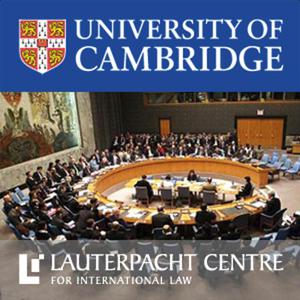LCIL-CILJ Annual Lecture 2023: 'Trade Law Policing on the Factory Floor: Next Generation Agreements and their Corporate Accountability Tools' - Prof Kathleen Claussen, Georgetown Law
The LCIL and Cambridge International Law Journal (CILJ) are pleased to invite you to the LCIL-CILJ Annual Lecture
Lecture summary: Recent pathbreaking trade agreements empower trade policymakers to target foreign companies in novel ways and to police corporate due diligence in global supply chains rather than seek to change foreign government behavior as used to be their purview. This repurposing of our trade enforcement system has the power to transform dramatically the global commercial system, the bargains it manages, the procedures applicable to it, and the rights and obligations of all involved.
This research project maps the institutional ascent of this revealed practice, which it maintains was the product of disillusionment with the intellectual pedigrees of conventional trade law. The project evaluates our trade policing in light of the progressive aims policymakers have set for it, taking into account the many constituencies on whom the burdens fall unevenly. This excavation exposes how our trade police do not operate like other widely accepted forms of law enforcement or of international law bureaucracy. Tactics like those in the new arsenal bear close resemblance to the practices of authoritarian governments that seek to provoke acquiescence without process. The project’s assessment prescribes lessons for the several disciplines trade policing touches, including for the way scholars and lawmakers conceive of what bodies of law, tools, and actors are best suited to manage transnational corporate behavior and for concepts of compliance in international law. Finally, this project demonstrates that, as a corporate accountability system, trade policing has leapfrogged efforts by fields with similar aims like business and human rights, and the policing tools we have so far are just the tip of the iceberg.
Kathleen Claussen is a leader in international economic law and procedure and has served as arbitrator, counsel, expert, public servant, and teacher. Her expertise covers several topics of international law, especially trade, investment, international business and labor; dispute settlement and international dispute bodies; national security and cybersecurity law; and, administrative law issues surrounding U.S. foreign relations and transnational agreements.
Professor Claussen has served as a visiting faculty member or invited researcher at numerous institutions around the world, including Northwestern University Pritzker School of Law, the University of Cambridge Lauterpacht Centre for International Law where she was a Brandon Fellow, the Graduate Institute of International and Development Studies in Geneva, the iCourts Center of Excellence at the University of Copenhagen, the George C. Marshall Center for Security Studies, the University of Zurich and Collegium Helveticum, and the World Trade Institute. Prior to joining the Georgetown faculty in 2023, she was a member of the faculty at the University of Miami School of Law for five years.
30 October 2023, 3:32 pm
